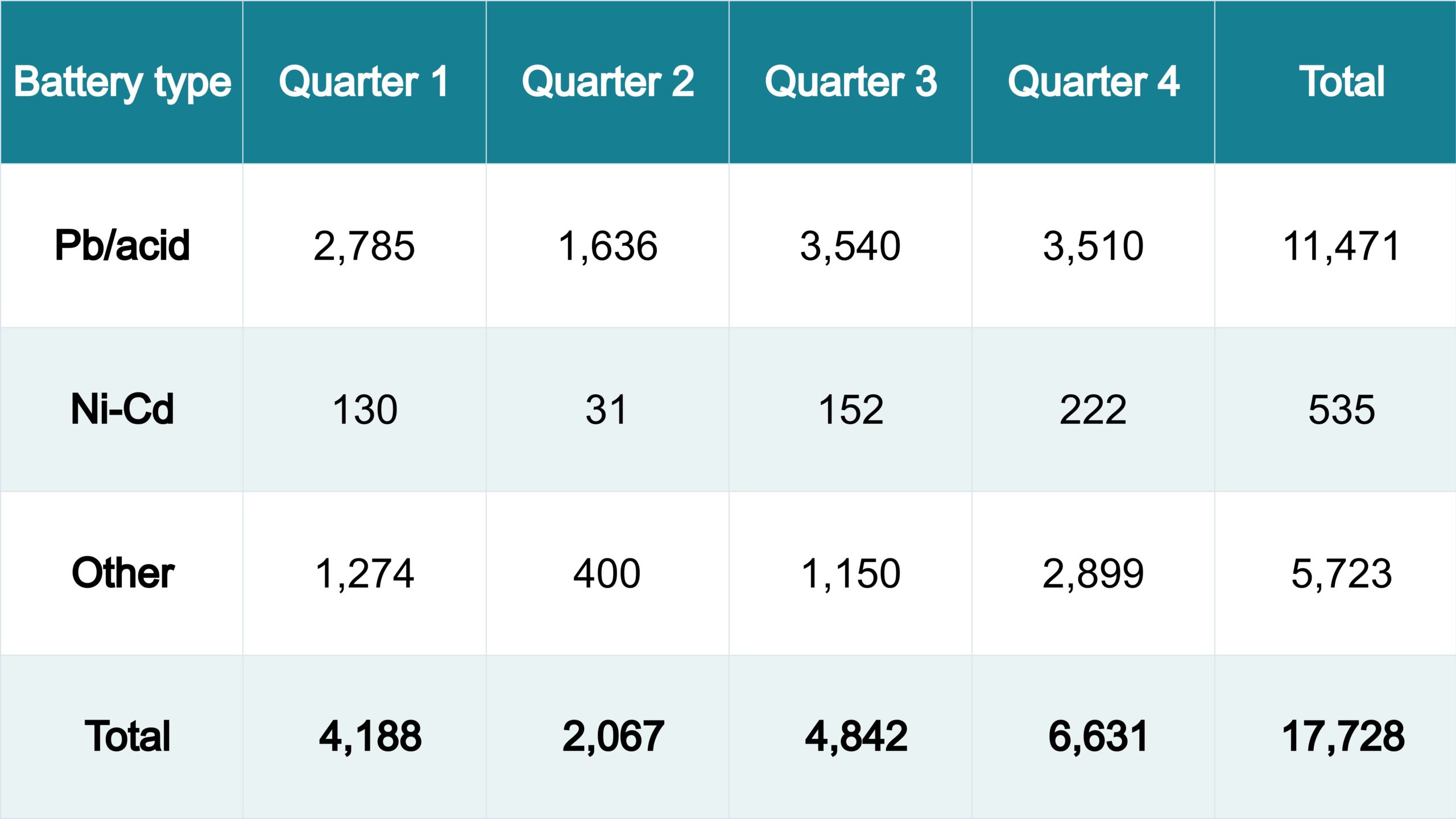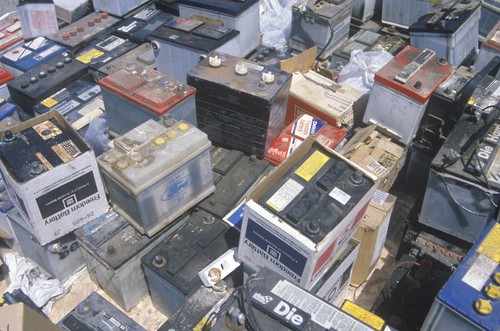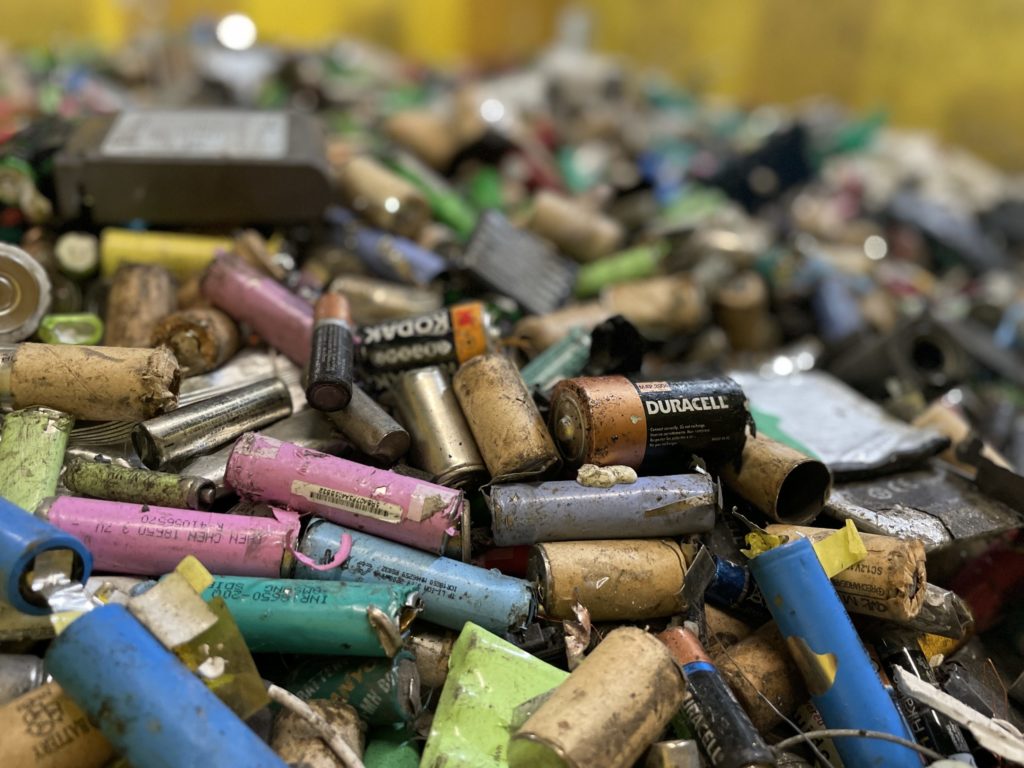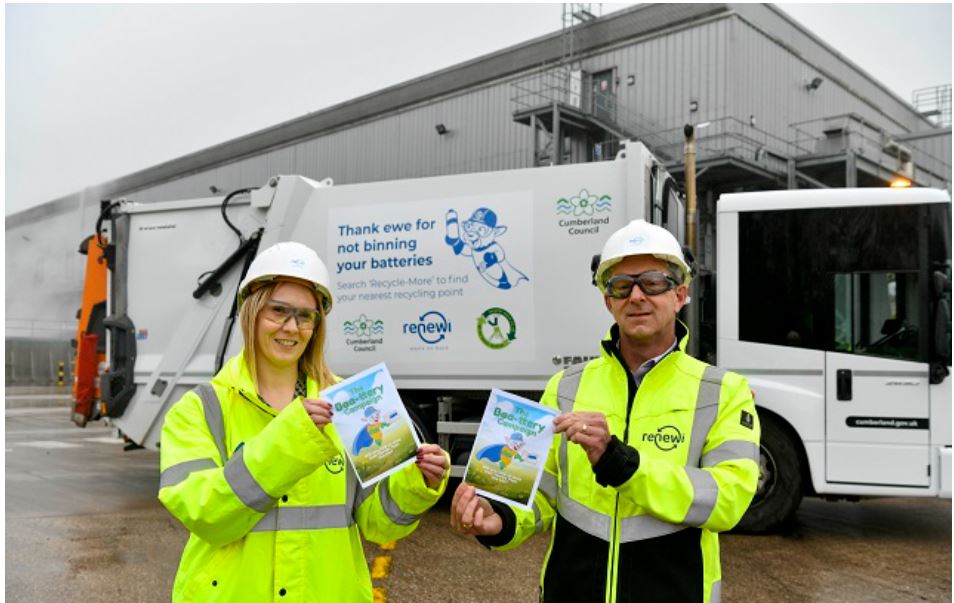Figures published late last month by the Environment Agency on the National Packaging Waste Database (NPWD) indicate that the UK’s portable battery compliance schemes collected a total of 17,728 tonnes of batteries for the year.

The target for collection in 2020 was 17,443 tonnes, representing 45% of the average annual volume of batteries placed on the market by producers in the preceding three years.
While the UK exceeded the target volume, just 17,399 tonnes of waste portable batteries evidence notes were accepted for 2020.
Clement Gaubert, head of operations at compliance scheme Ecosurety, told letsrecycle.com: “After marginally meeting its 45% collection target in 2018 and 2019 the UK narrowly missed the target in 2020 (44.89%).
“However, it is worth noting that the volume of waste portable batteries collected in 2020 was above the 45% collection target. Unfortunately, the final volume of portable batteries evidence notes accepted in 2020 was not sufficient to meet the 45% collection target. Interestingly, the indicative data published in March suggested the UK would meet the target.”
Lead acid
Mr Gaubert noted the data showed a continuation of several of the trends from the past few years. He said: “The collection figures reported in 2020 confirm two major trends observed for several years now: the stagnation of collections and the overreliance on lead-acid battery evidence, which represented 65% of waste portable batteries reported in 2020.”

Of the 40,866 tonnes of portable batteries placed on the market in 2020, 1,367 were lead acid, 307 were nickel cadmium (Ni-Cd) and 39,191 were ‘other’.
In terms of the 17,728 tonnes of waste portable batteries collected by compliance schemes, a staggering 11,471 were lead acid, while just 535 tonnes were Ni-Cd and 5,723 were other.
Concerns remain that the high number of lead acid batteries in the figures masks the fact not enough portable household batteries were collected.
‘Paralysis’
Peter Hunt, chair of the Leeds-based WasteCare Group, said the battery recycling industry would remain in “paralysis” until “the Environment Agency determined lead acid batteries were portable and therefore required manufacturers to report them as such”.
“The only realistic explanation for this is fraud and it’s a fraud that the authorities must know exists”
Mr Hunt said: “Of far greater concern is the fact that over half of the batteries that make up the UK’s recycling performance are small lead acid batteries weighing less than 4kg. After 10 years of debate Defra and the EA have still not concluded whether these batteries are in fact sealed or not and therefore should be considered as portable or industrial. This creates a bizarre situation where over 90% of small lead batteries are not declared by manufacturers as portable when placed on the market, but they make up the majority of portable battery recycling evidence.
“This might sound a small technical issue affecting a handful of companies, but this isn’t the case. Currently 10 times more ‘portable’ lead acid batteries are reported as evidence than are placed on the market. The only realistic explanation for this is fraud and it’s a fraud that the authorities must know exists.”
De minimis
Jon Clement is head of procurement at compliance scheme Valpak. He said the target was missed despite the UK exceeding the target tonnage because producers who supply less than one tonne of batteries per year do not have to pay for the recycling of the batteries.
He told letsrecycle.com: “The target not being reached happens because there are a number of SME producers who supply less than one tonne of batteries per year and, while required to register and provide data on what they place on the market, they don’t have to pay for the recycling of the batteries. In 2020 this amounted to just under 139 tonnes of batteries out of a total of the 41,004 tonnes placed on the market in total by registered businesses.
“Compliance schemes are required to obtain evidence for their members’ obligations, only therefore this small amount of tonnage under the current rules doesn’t get accounted for. The packaging regulations differ in that business targets for obligated businesses have always been set high enough above UK targets to account for unobligated packaging put on market by de minimis companies.”











Subscribe for free